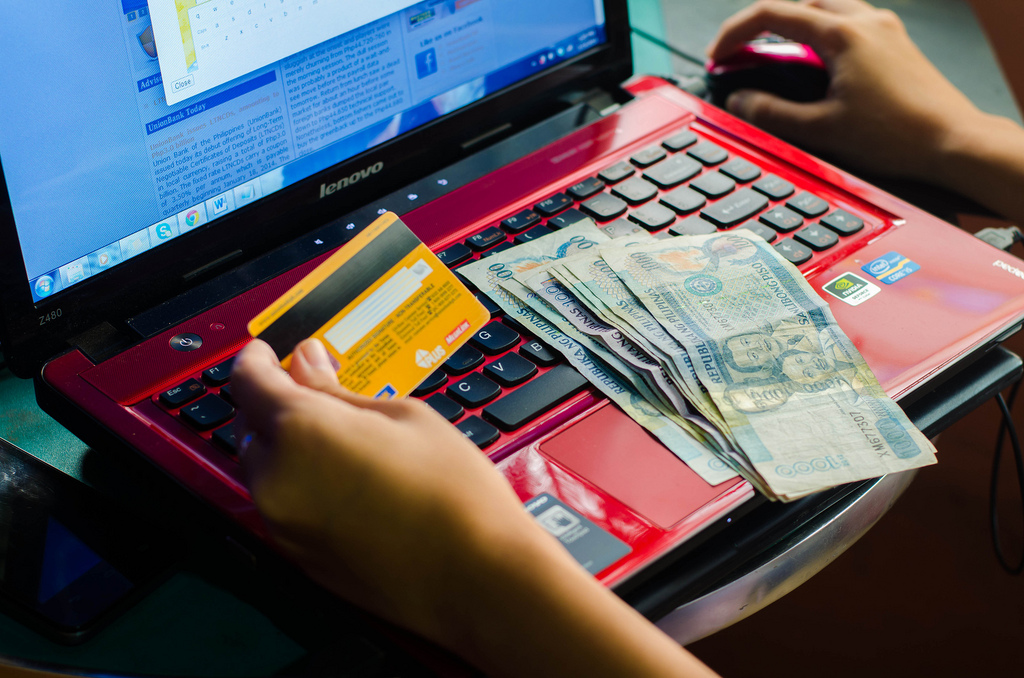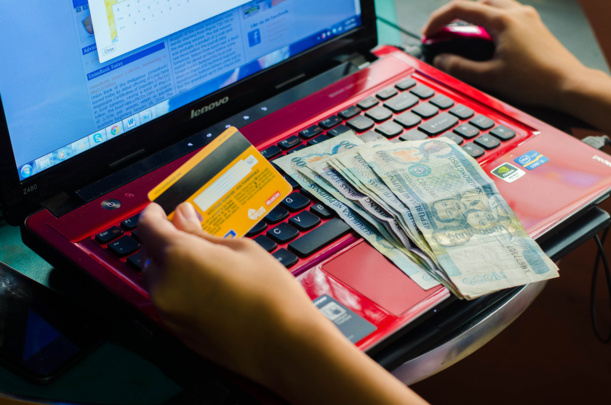The main selling point is convenience, both for citizens and organizations. A cashless society will protect citizens from petty theft and pickpockets – no cash held means no cash stolen. Because cash escapes state control, an economy with no cash will respond better to government economic policies. Tax evasion will be greatly reduced, with little place for money to hide. Individuals can monitor their entire wealth on one screen. Businesses will reduce the number of their financial channels. And many more where that came from : a cashless society is economic utopia.
Behind each of these golden nuggets lies a high economic, social and political risk. Even if some risks materialize and others don't, each one of them is worth considering, and probably backing down. A cashless society would indeed stimy petty criminals and put an end to money-stealing in its physical form, and also help law enforcement identify and arrest criminals. “The use of cash by criminals remains one of the most significant barriers to successful investigations and prosecution,” says Rob Wainwright, Director of Europol. But it would be naive to think that theft would disappear. The number of online frauds has steadily increased with the rise in electronic payments over the years. Thieves have simply adapted to the new economy and will continue to do so. However, physical theft requires robbing one person at a time – unlike online fraud which can come in a much broader scale. In other words, a cashless society won't extinguish theft, it will expand it. As Jaclyn Holmes, who surveyed the recent increase in online fraud, puts it, “consumers appreciate the convenience of being able to breeze through online check-out with a single click, but it may be leading some to wonder whether that same convenience could make them a tempting target for fraud.” Since last year alone, online fraud has increased 30%.
Electronic money has the appearance of security, because it usually comes with a password, or pin code, or relies on complex cryptograms. Indeed, they are safer, on the individual level, than a bill which can be slipped out of a pocket. But on the larger scale of the nation , it exposes the entire economy to cyberattacks. Over the past years, most Western countries have been showing increasing concern about attacks allegedly coming from Russia, China or Iran, mostly. The Indian Express ' online desk points out that "Accounts have been hacked en masse in many spectacular failures of online security. Many of these involved financial transactions and the leaking of customer data." And these are only targeted attacks on specific companies and servers. If one major attack were to come through, targeting the general system, we would be left with no alternative for our economies to hold up. Consulting firm McKinsey points at the looming threat :"in an environment of stepped-up cyberattacks, public clouds would be underutilized, given increased fear of vulnerabilities and higher costs from compliance with stricter policies on third-party access to data and systems. Such problems would delay the adoption of many systems and reduce the potential value from cloud computing by as much as $1.4 trillion."
Government economic programs and policies do tend to be eluded by the cash segment of the country's money. Wall Street Journal Anjani Trivedi writes, regarding this problem occurring in China, "The circular relationship between fee-starved banks, yield-hungry companies and savings-rich households means cash isn’t being invested in the real economy. Private fixed-asset investment growth shrank in June." And policies reaching all segments of the economy would be more efficient. But the efficiency gain of making a society cashless would be small, as most cash payments are made for small day-to-day operations, not substantial ones. And while boosted economic programs may increase general wealth in the country, the disappearance of cash will impact most those who are vulnerable within each society. Elderly people (who often don't master technological tools as well as their children) and the poorest categories are known to rely the most on cash. The rich would get richer and the poor and isolated would be further outcast. Monetary think tank CGAP details :"More than 75% percent of the world’s poor are excluded from formal financial services according to 2011 World Bank/Gallup data. They typically work and live in the informal economy and need financial access as much as anyone else to build assets, create livelihoods, manage risks and smooth consumption". Those citizens would quickly be shut out of society.
The last, least conspicuous, and perhaps most dangerous aspect of a cashless society is the cost on individual freedom. With nowhere to hide from States and banks, the cost to invidual freedom will be devastating – and more, it will be irreversible. Once private and public organizations have established complete control over the citizen's lives, they will not relinquish it. Something worth considering when eyeing this new opportunity for a little more convenience.
Behind each of these golden nuggets lies a high economic, social and political risk. Even if some risks materialize and others don't, each one of them is worth considering, and probably backing down. A cashless society would indeed stimy petty criminals and put an end to money-stealing in its physical form, and also help law enforcement identify and arrest criminals. “The use of cash by criminals remains one of the most significant barriers to successful investigations and prosecution,” says Rob Wainwright, Director of Europol. But it would be naive to think that theft would disappear. The number of online frauds has steadily increased with the rise in electronic payments over the years. Thieves have simply adapted to the new economy and will continue to do so. However, physical theft requires robbing one person at a time – unlike online fraud which can come in a much broader scale. In other words, a cashless society won't extinguish theft, it will expand it. As Jaclyn Holmes, who surveyed the recent increase in online fraud, puts it, “consumers appreciate the convenience of being able to breeze through online check-out with a single click, but it may be leading some to wonder whether that same convenience could make them a tempting target for fraud.” Since last year alone, online fraud has increased 30%.
Electronic money has the appearance of security, because it usually comes with a password, or pin code, or relies on complex cryptograms. Indeed, they are safer, on the individual level, than a bill which can be slipped out of a pocket. But on the larger scale of the nation , it exposes the entire economy to cyberattacks. Over the past years, most Western countries have been showing increasing concern about attacks allegedly coming from Russia, China or Iran, mostly. The Indian Express ' online desk points out that "Accounts have been hacked en masse in many spectacular failures of online security. Many of these involved financial transactions and the leaking of customer data." And these are only targeted attacks on specific companies and servers. If one major attack were to come through, targeting the general system, we would be left with no alternative for our economies to hold up. Consulting firm McKinsey points at the looming threat :"in an environment of stepped-up cyberattacks, public clouds would be underutilized, given increased fear of vulnerabilities and higher costs from compliance with stricter policies on third-party access to data and systems. Such problems would delay the adoption of many systems and reduce the potential value from cloud computing by as much as $1.4 trillion."
Government economic programs and policies do tend to be eluded by the cash segment of the country's money. Wall Street Journal Anjani Trivedi writes, regarding this problem occurring in China, "The circular relationship between fee-starved banks, yield-hungry companies and savings-rich households means cash isn’t being invested in the real economy. Private fixed-asset investment growth shrank in June." And policies reaching all segments of the economy would be more efficient. But the efficiency gain of making a society cashless would be small, as most cash payments are made for small day-to-day operations, not substantial ones. And while boosted economic programs may increase general wealth in the country, the disappearance of cash will impact most those who are vulnerable within each society. Elderly people (who often don't master technological tools as well as their children) and the poorest categories are known to rely the most on cash. The rich would get richer and the poor and isolated would be further outcast. Monetary think tank CGAP details :"More than 75% percent of the world’s poor are excluded from formal financial services according to 2011 World Bank/Gallup data. They typically work and live in the informal economy and need financial access as much as anyone else to build assets, create livelihoods, manage risks and smooth consumption". Those citizens would quickly be shut out of society.
The last, least conspicuous, and perhaps most dangerous aspect of a cashless society is the cost on individual freedom. With nowhere to hide from States and banks, the cost to invidual freedom will be devastating – and more, it will be irreversible. Once private and public organizations have established complete control over the citizen's lives, they will not relinquish it. Something worth considering when eyeing this new opportunity for a little more convenience.


 Cashless society : the golden tip of the iron rod
Cashless society : the golden tip of the iron rod





 Companies
Companies